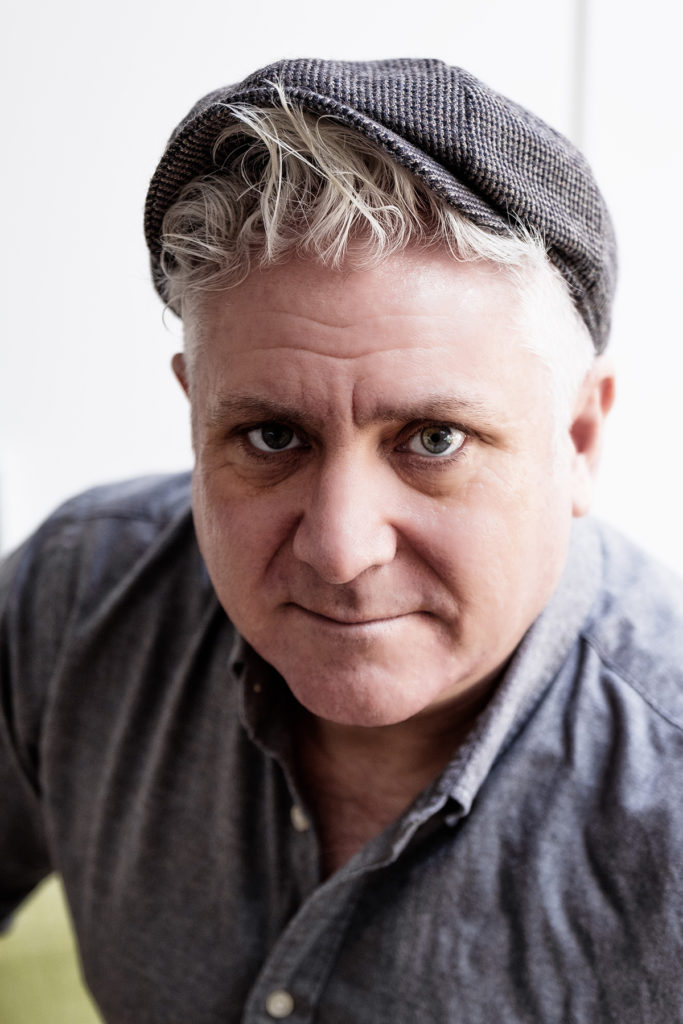The music industry has been hit hard by the pandemic, but with the right support it could play a huge part in economic regeneration. We spoke to festival organisers to understand what support they are receiving.

The music industry has been hit hard by the pandemic, a fact that has huge repercussions for the Welsh economy. It is vital that live music, particularly music festivals, are included in an economic recovery roadmap – but as yet Mark Drakeford’s announcements have given little away.
According to UK Music’s: Music By Numbers 2020 report, in Wales around 440,000 music tourists bring £143 million to the economy in a sector that employs 1,843 people. Put another way, for every person employed for the year in the Welsh music sector £77,590 was added to the economy. The report also highlights the unquestionable impact live music has on regional growth, with £17 pound for every £10 ticket going to local economies. The Association of Independent Festivals also released data showing that a 5000 capacity festival is worth £1.1 million to the local area.
Surely an industry that generates so much money must be high on the government agenda for a swift fix to the economy in any recovery plan? As things stand – the answer to that is unclear. Until the government can put plans in place and provide some form of insurance for music festivals, the industry is in big trouble.
These events, even the small ones, take anywhere between 6 and 12 months to organise – with considerable marketing, booking, artist deposit and staffing costs racking up. Insurance for events does not cover communicable diseases, this is new territory that requires leadership from the top. There have been calls from the industry, through mediums such as The Musicians Union and UK Music, to provide Covid-19 insurance to enable them to plan for the summer as normal – but no insurance was included in Rishi Sunak’s recent budget announcement. That said, there has been money made available to those who bid for it to ensure they don’t go under through the cultural recovery fund and bounce-back loans.
Mark Drakeford is yet to announce anything as concrete as Boris in terms of a roadmap. There has been a flurry of ticket sales and excitement since Boris’ announcement, but the Welsh government are being much more cautious – stating that things will not be “back to normal” in 2021. Let’s hear from Welsh festival organisers to hear the story from their side.

David Robertson (Co-Founder/ Creative Director of Big Love Festival)
Big Love is a 1500 capacity festival held at Baskerville Hall in Hay-On-Wye – due to take place 9-11 July. Last year would have been their 5th year running the event.
David explained that most of the team had been running small festivals before this project too, that they were now generating profit – but this had certainly been a labour of love with the team fronting a lot of the costs themselves in previous years.
“We’re growing year on year, we’ve managed to grow without any sort of external funding or sponsorship,” he confirmed proudly.
There is a core team of five who organise and run the event, with a planning process that usually takes around 11 months of the year. The team all work full time jobs alongside producing the festival. Having turned over a profit at the last event, there was some initial funds to ensure their survival from March last year, but the team also had a successful application for a £10k bounce back loan. They have since secured £30k from the Cultural Recovery fund.
While they were obviously very pleased to secure this money, David says the application process was not very clear, “it very much felt like a one size fits all kind of form.” Because these forms were so generalised, he says, and could have been for a whole host of venues and entertainment providers, it wasn’t particularly clear what the funding would be for and which aspects of their operation the government was willing to support and cover. David says that they knew they would probably be eligible, and therefore applied, but after tallying up their usual running costs they asked for significantly less as they thought it might help their chances. Upon receiving approval for the £30k they requested, they were asked why they hadn’t asked for more money – although it was now too late. This was understandably frustrating. While this doesn’t take away from the support they have received, it speaks to the confusion and uncertainty surrounding – well everything.
One thing that has really kept them going, David says, is the support from all the public who bought tickets and rolled them over this year – with the team only having to refund around 20 tickets.

Joseph Worley (Founder of Westival)
Westival is a 1200 capacity festival held at Shipping Hill Farm in Tenby (Pembrokeshire) – due to take place on 22-26 July this year. Last year would have been their third official year.
“We started as a bit of a private party, then it just kind of snowballed from that,” explains Joe.
Joe says that postponing last year was inevitable and necessary, but that the frustrating side of the process has been the lack of clarity moving forward. Whilst he isn’t expecting any kind of military precision, he would like to see some speculation from governing bodies as to the measures they would need to see in place to make events feasible.
“Our licence obviously won’t have taken into account any kind of Covid-19 regulations, but I guess there’s always additions you can make; whether it’s social distancing, masks, safe areas or rapid testing,” said Joe. “We just want to make sure that we’re doing everything we can to make it a safe environment.”
Operating in this grey area is having a knock on effect, Joe says, as they now have to be cautious booking artists, lighting companies, sound systems, food vendors, tent hire – the list is long.
Despite these difficulties, Westival did manage to secure a £20k bounce back loan from the English government – which will ensure at the least that they don’t go under. That said, due to the size of the festival and the fact that it is run by a small team who all have secondary jobs – there is no chance of them securing grants, says Joe.
“We’re kind of falling through the cracks a little bit,” he says.
As such they desperately need the government to provide some form of Covid insurance to ensure that a potential cancellation won’t leave them dramatically out of pocket.
Since Johnson’s roadmap announcement the festival has also managed to sell all their tickets for the event this year and eagerly await further news from Mark Drakeford.

Andy Jones (Co-Founder of FOCUS Wales)
FOCUS Wales is a not-for-profit music industry event that takes place in Wrexham and was due to hold its 10th edition in May last year, was then postponed to October 2020 and then again to October 2021. This is the most pivotal music industry event that Wales holds, bringing around 15,000 people to the town over three days, with 250 bands, industry panels, film screenings and art shows.
The festival was started after the realisation by three friends that Wales didn’t have an event like this – a platform for Welsh artists to meet the right industry people. FOCUS now works with partners as far as Texas and Korea to help acts grow and become international. They are also a part of the INES festivals network, which enables them to nominate artists to a talent pool – where they are then invited to play at 21 other industry events and provided with travel, accommodation and of course a stage to perform.
The team have spent the pandemic pivoting, finding new ways to use their platform and contacts to keep things moving for themselves and the artists of Wales left adrift.
“The mission statement behind Focus Wales is to provide an industry platform for our artists,” explains Andy. “The event is as much about the conference side and the networking opportunities that come with that, for artists in Wales who engage with music industry reps from around the world, as it is the performance side of it.” Sticking true to their values, Andy realised they could in fact still operate and provide this kind of platform online – so they launched Out of Focus (an online networking and conference event).
Being in a role where he already engages actively with Welsh government, Arts Council Wales and music promoters, festival organisers, artists and labels all over the world – Andy is in a unique position to critically assess the Welsh position right now.
“Welsh Government, I do feel, have been well engaged with the sector,” he says. “There have been regular meetings with music development groups, or specifically the live sector, and there has been opportunity for the sector to engage with Welsh Government to provide their thoughts, their feedback, the challenges that we’re all facing.”
This is obviously in stark contrast to the experience of the other festivals we spoke to. When pushed on whether he is in fact just better positioned to have access to these people and this information, Andy says that may well be the case. Despite that, he insists that having spoken quite actively with counterparts across the world and even in England, the Welsh government have been perhaps the most engaged with the sector – even if that is behind proverbial closed doors.
Despite feeling a bit closer to the circles of decision makers, Andy is as much at the whim of further announcements as the others – a situation that can only be resolved with planning and Covid-19 insurance. The recent budget announcement did not include this insurance, meaning guarantees of any such protection will require further pressure from the sector.
